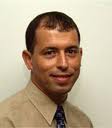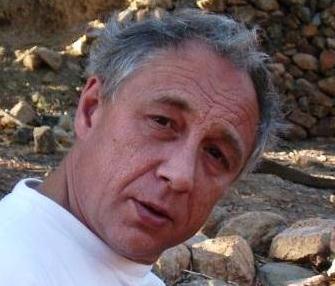Liste des conférenciers invités
Titre de la conférence: " How to Deliver a Successful Thesis in Cyber-Physical Systems (CPS) research".
Dr Driss Benhaddou, Dr. Driss Benhaddou is an Associate Professor at the University of
Houston (UH), Texas, and is currently a Fulbright visiting Professor at
Al Akhawayn University, School of Science and Engineering,
conducting research and teaching activities in the application of
Wireless Sensor Networks (WSN) in distributed solar energy in smart
grid. He is actively involved in optical networking and wireless sensor
networks research activities. He developed state of the art wireless
and optical networking research lab (www.tech.uh.edu/won) at UH. Dr. Benhaddou has
an extensive industrial experience with Lambda Optical Systems and Sprint, where he
played a key role in protocol development and systems integration activities. He holds
two doctoral degrees in optoelectronics and telecommunication networking from the
University of Montpellier II, France, in 1995, and the University of Missouri in 2002.
Imagine a building capable of turning up the heat, activating the air-conditioning and even
sending surplus solar energy it generated to the main power grid. As the current power
grid is evolving toward a “smart grid” concept with power generation and distribution
will involve small scale renewable energy technologies, such as solar energy (i.e.
photovoltaic (PV)), intelligent buildings will have the capabilities to autonomously decide
and act what to do with its environment and with the extra energy it produces. A typical
scenario to consider is a customer implementing a solar energy system that will be
used to deliver electricity to its needs while interacting with the smart grid for optimum
operation of the building. This is a typical Cyber-Physical Systems (CPS) that requires a
deep integration of computation, communication, and control into physical systems. The
presentation will talk about the research process and how to deliver a successful thesis in
Cyber-Physical System (CPS).
Imagine a building capable of turning up the heat, activating the air-conditioning and even sending surplus solar energy it generated to the main power grid. As the current power grid is evolving toward a “smart grid” concept with power generation and distribution will involve small scale renewable energy technologies, such as solar energy (i.e. photovoltaic (PV)), intelligent buildings will have the capabilities to autonomously decide and act what to do with its environment and with the extra energy it produces. A typical scenario to consider is a customer implementing a solar energy system that will be used to deliver electricity to its needs while interacting with the smart grid for optimum operation of the building. This is a typical Cyber-Physical Systems (CPS) that requires a deep integration of computation, communication, and control into physical systems. The presentation will talk about the research process and how to deliver a successful thesis in Cyber-Physical System (CPS).
Titre de la conférence: " Evolving Smart Information Systems".
 Pr. Ajith Abraham Monash University, Melbourne, Australia received the Ph.D. degree in Computer Science from
Monash University, Melbourne, Australia. He is currently the Director
of Machine Intelligence Research Labs (MIR Labs), Scientific
Network for Innovation and Research Excellence, USA, which has
members from more than 85 countries. He has a worldwide
academic and industrial experience of over 20 years. He works in a
multidisciplinary environment involving machine intelligence,
network security, various aspects of networks,
Pr. Ajith Abraham Monash University, Melbourne, Australia received the Ph.D. degree in Computer Science from
Monash University, Melbourne, Australia. He is currently the Director
of Machine Intelligence Research Labs (MIR Labs), Scientific
Network for Innovation and Research Excellence, USA, which has
members from more than 85 countries. He has a worldwide
academic and industrial experience of over 20 years. He works in a
multidisciplinary environment involving machine intelligence,
network security, various aspects of networks,
e-commerce, Web
intelligence, Web services, computational grids, data mining, and
their applications to various real-world problems. He has numerous
publications / citations (h-index 40) and has also given more than 50 plenary lectures and
conference tutorials in these areas.
Since 2008, he is the Chair of IEEE Systems Man and Cybernetics Society Technical
Committee on Soft Computing and a Distinguished Lecturer of IEEE Computer Society
representing Europe (since 2011). Dr. Abraham is a Senior Member of the IEEE, the
Institution of Engineering and Technology (UK) and the Institution of Engineers Australia
(Australia), etc. He is the founder of several IEEE sponsored annual conferences, which
are now annual events. More information at: http://www.softcomputing.net.
Titre de la conférence: " Du protocole expérimental à la rédaction scientifique".
Pr. Ahmed Aarab, Université Abdelmalek Essaâdi, Faculté des Sciences et Techniques, Tanger Maroc. Du protocole expérimental à la rédaction scientifique a pour
objectifs : - De sensibiliser le jeune chercheur au savoir et au
savoir-faire méthodologique nécessaire tout au long de sa recherche
scientifique depuis le développement et élaboration des hypothèses
et des protocoles de travail à la rédaction de son mémoire de thèse
ou de ses articles, avec toutes les rigueurs que la norme scientifique
exige ;
- De susciter le jeune chercheur à développer un esprit scientifique
pour mener à bien son travail de recherche. Le jeune chercheur
saura ainsi, comment discuter ses propres résultats, comment les
situer par rapport à ceux obtenus ailleurs et comment les mettre en valeur ; enfin
- De motiver nos étudiants-chercheurs à bien présenter leurs résultats sous forme de
communications orale et affichée.
Les 3 axes abordés seront les suivants :
AXE 1: Développement des hypothèses et de la mise en place du protocole de travail,
ainsi que le traitement des résultats, à leur discussion ainsi qu’aux conclusions
qui en découlent.
AXE 2: Différentes règles et normes exigées pour une rédaction scientifique rigoureuse.
AXE 3: Règles et techniques de la communication scientifique aussi bien orale
qu’affichée.
Titre de la conférence: " L’apport du Cloud Computing dans le monde de la recherche".
Stéphane Consalvi, Server & Tools Business Group lead– Microsoft North Africa, Middle East and Pakistan, ingénieur informatique de formation est chez Microsoft depuis 20 ans. Responsable technique pour la région Sud Ouest chez Microsoft France, il a travaillé dans les domaines de l’aéronautique (Aérospatiale, Airbus, Matra, Agence Spatiale Européenne, Centre Nationale d’études spatial…) et du secteur financier sur des projets d’envergure. Il a pris ensuite la responsabilité de l’avant vente technique pour Microsoft Afrique du Centre et de l’Ouest, couvrant 25 pays, du Gabon au Sénégal,
où il a contribué à mettre en place l’activité technique de Microsoft pour cette région. Stéphane a contribué à l’ouverture Microsoft Nigeria pour les aspects techniques.
Pendant 5 ans au Maghreb, Stéphane Consalvi a pris la responsabilité de l’équipe Technologies Spécialistes. L’équipe était en charge des technologies Serveurs pour Microsoft North Africa et assurait les relations techniques avec les grands clients et les partenaires.
Une nouvelle mission lui a été confiée, par la suite sur une région plusétendue : « Platform Strategy Manager » pour la région North Africa, East Med & Pakistan. Son rôle a été d’articuler la stratégie Microsoft dans les pays faisant partie de cette zone.
Depuis 4 ans, il est responsable du groupe de produits « Serveurs & Outils de développement » pour la région North Africa, East Med & Pakistan. A ce titre, il est en charge de la stratégie pour ce groupe de produits, ce qui inclue par exemple Windows Server, SQL Server ou les outils de management System center qui sont au cœur de la stratégie Cloud (public ou privé) de Microsoft. Windows Azure est aussi une des initiatives majeures sur lesquelles il travaille actuellement.
« Microsoft m’a donné la possibilité de travailler dans de nombreux pays et régions du monde. J’ai pu aller à la rencontre des cultures différentes, d’hommes et de femmes différents. Au final, cela m’a enrichit et agrandit la vision du monde que j’avais. Cela m’a changé en tant que personne. Je comprends mieux beaucoup de facettes de l’humanité et j’apprends toujours de nouveaux horizons »
Titre de la conférence: " QoS for media networks".
 Amine Choukir, Master of Science in communication systems from the Swiss Federal Institute of Technology, Amine was born in Rabat, Morocco in 1984 from a French mother
and Moroccan father. He spent his childhood and teen age in Rabat,
Morocco. In 2000, he left for Paris to attend the St-Cyr military high
school where he obtained his baccalaureat with Honours. Amine
then headed to Switzerland for his higher education at the Swiss
Federal Institute of Technology in Lausanne. Amine specialised in
wireless networking and internet computing. He participated in
several research projects on wireless where he developed a trace merger for 802.11 in
AD Hoc mode to understand the behavior of collisions and bandwidth utilization in Mesh
Network. He also worked on the fairness in wireless mesh network were he devised a
way to predict wireless patterns and their derived throughput. He holds a Master of
Science in communication systems from the Swiss Federal Institute of Technology.
Amine was an intern at JP Morgan in London where he was part of the commodities and
foreign exchange trading desk. During his internship he helped devise the JP Morgan Commodity Curve Indicies. He was an intern at NTT Docomo Eurolabs where he worked
on human traffic recognition in ciphered wireless communication based on machine
learning.
Amine now works at Cisco Systems on Medianet which is Cisco's solution to make media
applications easier to deploy, offer them proper network treatment and visibility.
Amine Choukir, Master of Science in communication systems from the Swiss Federal Institute of Technology, Amine was born in Rabat, Morocco in 1984 from a French mother
and Moroccan father. He spent his childhood and teen age in Rabat,
Morocco. In 2000, he left for Paris to attend the St-Cyr military high
school where he obtained his baccalaureat with Honours. Amine
then headed to Switzerland for his higher education at the Swiss
Federal Institute of Technology in Lausanne. Amine specialised in
wireless networking and internet computing. He participated in
several research projects on wireless where he developed a trace merger for 802.11 in
AD Hoc mode to understand the behavior of collisions and bandwidth utilization in Mesh
Network. He also worked on the fairness in wireless mesh network were he devised a
way to predict wireless patterns and their derived throughput. He holds a Master of
Science in communication systems from the Swiss Federal Institute of Technology.
Amine was an intern at JP Morgan in London where he was part of the commodities and
foreign exchange trading desk. During his internship he helped devise the JP Morgan Commodity Curve Indicies. He was an intern at NTT Docomo Eurolabs where he worked
on human traffic recognition in ciphered wireless communication based on machine
learning.
Amine now works at Cisco Systems on Medianet which is Cisco's solution to make media
applications easier to deploy, offer them proper network treatment and visibility.
| |
|
|
|
|
|
Partenaires JDSIRT 2013*
*liste non exhaustive
|